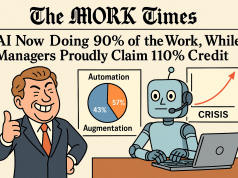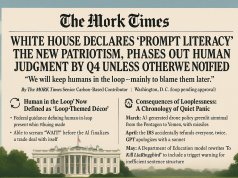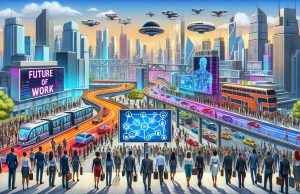As we find ourselves on the precipice of a technological avalanche that promises to reshape our very existence, the world of work – as we know it – is heaving under the weight of transformation. Traditional roles are being dismantled, and emerging technologies such as artificial intelligence, machine learning, and automation are not just knocking at the door; they are redesigning the entrance. This seismic shift has brought with it an urgent mandate: the imperative to upskill.
In the intricate tapestry of the modern economy, the thread of continuous learning is becoming increasingly pronounced. The narrative is no longer about acquiring a set of skills for life but about the agility to learn, unlearn, and relearn. The sanctity of job security, once the cornerstone of career aspirations, is now subject to one’s ability to navigate the rapids of technological progress.
As we delve into this introspective exploration of the workforce’s adaptability, we are reminded that the ripples caused by technology are as pervasive as they are profound. The infusion of automation in various sectors is poised to displace routine jobs, pushing the workforce towards more complex, problem-solving and creative roles. This evolution has placed upon each individual’s shoulders the societal and personal responsibility to upskill. But what does upskilling truly entail in this context? It is about fostering a mindset geared towards lifelong learning, cultivating a suite of adaptable and transferable skills, and nurturing the curiosity that spurs innovation.
Expert opinions are divided when it comes to the effectiveness of the current workforce education models. Many argue that traditional education systems are lagging, unable to keep up with the rapid pace of change, thus failing to equip learners with the necessary toolkit to thrive in tomorrow’s workplace. Others point to the burgeoning growth of online platforms and corporate learning programs, suggesting that they may be the key to democratizing education and enabling a more nimble upskilling process.
Innovative approaches are emerging from the confluence of technology and education. Micro-credentials, digital badges, and gamified learning experiences are but a few examples of how the education landscape is mutating to fit the contours of a digital age. The digital medium has not only expanded access but also allowed for a personalized learning journey, enabling individuals to tailor their upskilling trajectory according to their career objectives and learning preferences.
The challenge remains, however, in cultivating an ecosystem that not only encourages but supports lifelong learning. This is where policymakers, educators, and businesses must harmonize their efforts. Policy initiatives that incentivize skill development, corporate cultures that prioritize employee growth, and education systems that focus on critical thinking and emotional intelligence are vital components of a support structure for workforce resilience.
As we embark on this exploration of the upskilling imperative, it becomes clear that the future of work is not about a solitary player but an orchestra of stakeholders each contributing to the symphony of progress. The journey forward is indeed daunting, but it also brims with the promise of human potential, a potential that can only be realized if workers are equipped, empowered, and not left behind as the job landscape undergoes its metamorphosis.
In conclusion, the onus is on us, as a society, to heed the clarion call of upskilling. It is imperative to forge a refined alchemy where technology, education, and human ambition meld to script the chronicles of a future-ready workforce. The time to act is now, for the future of work is unfurling before us, and it waits for none.

























